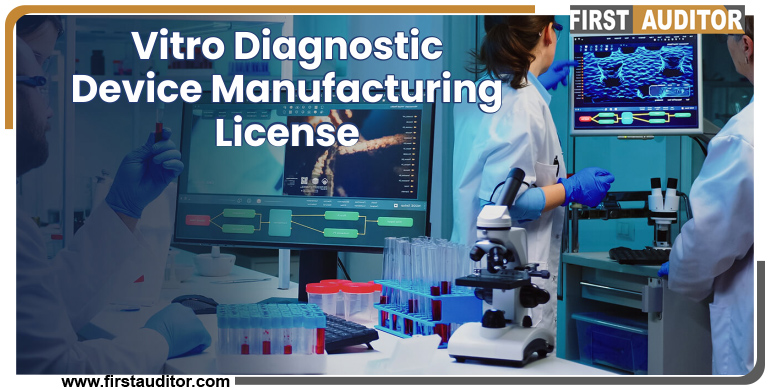The production of in-vitro diagnostic tools, kits, and reagents is governed by the Drug and Cosmetic Act of 1940 and Rules of 1945. (IVD). Before, India lacked any provisions for the registration of IVD. However, in 2017 the Indian government released an official announcement for the registration of IVD and medical devices. Under the New Rules of the Government of India, there are a total of 462 Products classed as medical devices and 250 Products as IVD.
A disease or other health condition can be diagnosed using in vitro diagnostic technologies, which include kits, reagents, tools, and systems. This includes determining one's overall health in order to treat, cure, or prevent disease or its complications. These goods are designed to be used in the collecting, preparation, and analysis of human body specimens.

Medical Device Rules of 2017 classify In-Vitro Diagnostic Devices as follows -
Medical devices used for in vitro diagnosis are categorised as follows based on risk parameters listed in Part II of the first schedule :
According to Part II of the First Schedule of the Medical Device Rule 2017's Parameter Notified in Chapter II, Rule 4, Sub Rule (2), the IVD are classed as under
SLA is authorised to issue a licence for Class A and Class B IVD Manufacturing in all Indian states and the Union Territory. The State Drugs Control Authority with authority over the manufacturing facility must receive the manufacturing company's application. The State Licensing Authority must receive all necessary technical and administrative paperwork from the applicant before issuing any permits to produce IVDs.
The national licencing authority for Class C & D OF IVD devices/kits in India is CDSCO, which falls under the Directorate General of Health Services, Ministry of Health and Family Welfare, Government of India.
| Type of License | Risk /class | Application Form | Approval Form |
|---|---|---|---|
| Manufacturing license | A&B | MD 3 Application for grant of license manufacture for sale and distribution of Class A & B medical devices | MD 5 License to manufacture for sale and distribution of Class A & B medical devices |
| Loan license | A&B | MD 4 Application for grant of loan License to manufacture for sale and distribution of Class A & B medical devices | MD 6 Loan License to manufacture for sale and distribution of Class A & B medical devices |
| Manufacturing License | C&D | MD 7 Application for grant of license manufacture for sale and distribution of Class C & D medical devices | MD 9 License to manufacture for sale and distribution of Class C & D medical devices |
| Loan license | C&D | MD8 Application for grant of loan License to manufacture for sale and distribution of Class C & D medical devices | MD 9 Loan License to manufacture for sale and distribution of Class C & D medical devices |
A completed application in the required form, along with the prescribed fees and challan, must be sent to the CDSCO by the applicant.
If any errors or discrepancies are discovered, the Authority questions them and informs the applicant. If the application passes inspection and is in order, it is processed for audit by the notified authority in accordance with the Medical Device Rule.
Any non-compliance must be fixed by the applicant. The applicant is then given access to the audit report and the NC closure report by the body that was notified.
The Audit report is moved on to the following stage if the examination deems it to be satisfactory.
The specifics of the products submitted are examined in the following phase; if the products meet all standards and rules, the application is taken into consideration for the granting of a licence.
The application company is given an in vitro diagnostic device manufacturing licence if all the requirements and conditions are met.
It is a regulatory license issued by CDSCO to manufacture in-vitro diagnostic (IVD) devices in India. This ensures compliance with safety and quality standards under the Medical Device Rules, 2017.
Manufacturers producing IVD devices used for diagnosis or screening of diseases, conditions, or monitoring health indicators in India must obtain this license.
Forms MD-3 (for new applications) and MD-5 (for the manufacturing license) are required. These forms are submitted via the CDSCO SUGAM portal.
Key documents include site layout, ISO 13485 certification, manufacturing details, product validation reports, device master file (DMF), and technical staff qualifications.
The license is valid indefinitely but requires compliance with periodic audits and regulatory requirements. Non-compliance may result in suspension or cancellation.